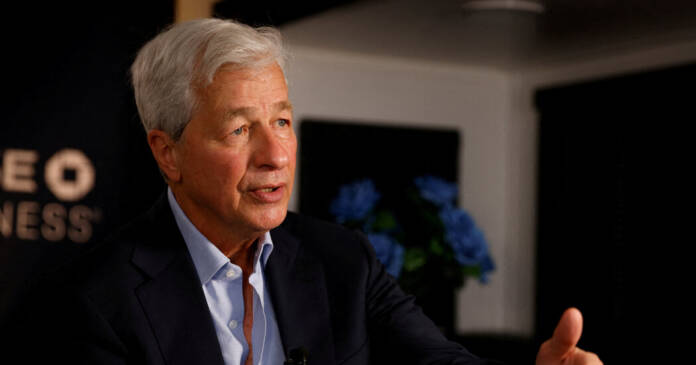Jamie Dimon, the chief executive of JPMorgan Chase, who recently rallied fellow bank leaders to the rescue of smaller rivals, devoted plenty of ink to the banking crisis in his annual letter to shareholders on Tuesday.
“As I write this letter, the current crisis is not yet over, and even when it is behind us, there will be repercussions from it for years to come,” Mr. Dimon wrote in the letter, which is followed closely on Wall Street.
Last month, Mr. Dimon corralled $30 billion in funds from JPMorgan and other big banks to deposit at First Republic, a midsize lender that had struggled with rapid withdrawals and a plunge in its stock price after the collapse of Silicon Valley Bank and Signature Bank spooked the market.
In diagnosing the origins of the recent turmoil, which Mr. Dimon said was “nothing like what occurred during the 2008 global financial crisis,” he said crucial risks lurking on banks’ balance sheets were “hiding in plain sight.” Silicon Valley Bank’s corporate clients, for instance, “were controlled by a small number of venture capital companies and moved their deposits in lock step,” he wrote.
Regulations were also partly to blame, he said, noting that required stress tests failed to take into account rapidly rising interest rates. He added that rules on capital requirements had encouraged banks to load up on government bonds, which have dropped in value as rates have risen and threatened to saddle lenders with large losses like the one that rattled depositors at Silicon Valley Bank.
“This is not to absolve bank management — it’s just to make clear that this wasn’t the finest hour for many players,” Mr. Dimon wrote. “All of these colliding factors became critically important when the marketplace, rating agencies and depositors focused on them.”
Banking regulators faced skeptical questioning at congressional hearings last week, prodded on why they had not done more to stop Silicon Valley Bank from imploding.
President Biden has called for increased scrutiny of banks with $100 billion to $250 billion in assets, like Silicon Valley Bank. The Federal Reserve is investigating how it failed to stop vulnerabilities at the bank, which could result in tighter regulation and supervision.
Mr. Dimon, who has long taken issue with some of the complexities of financial regulations imposed after the 2008 financial crisis, cautioned against “knee-jerk, whack-a-mole or politically motivated” rule-making in response to the current tumult.
Mr. Dimon said it “should not always be about more or less regulation” but should rather be about the right mix of rules, which also take into account factors such as customer concentration, uninsured deposits and limitations to accounting practices that have come to light after the recent bank collapses.
Turning to the broader economy, Mr. Dimon said “jitters” would “clearly cause some tightening of financial conditions as banks and other lenders become more conservative.” Although stricter lending practices may have the same dampening effect on the economy as higher interest rates, for now the economy is in “pretty good” shape, Mr. Dimon said.
“Even if we go into a recession, consumers would enter it in far better shape than during the great financial crisis,” Mr. Dimon wrote.
The chief of the nation’s largest bank also rejected the notion that the travails of smaller lenders has been good for JPMorgan. “While it is true that this bank crisis ‘benefited’ larger banks due to the inflow of deposits they received from smaller institutions, the notion that this meltdown was good for them in any way is absurd,” he said.














